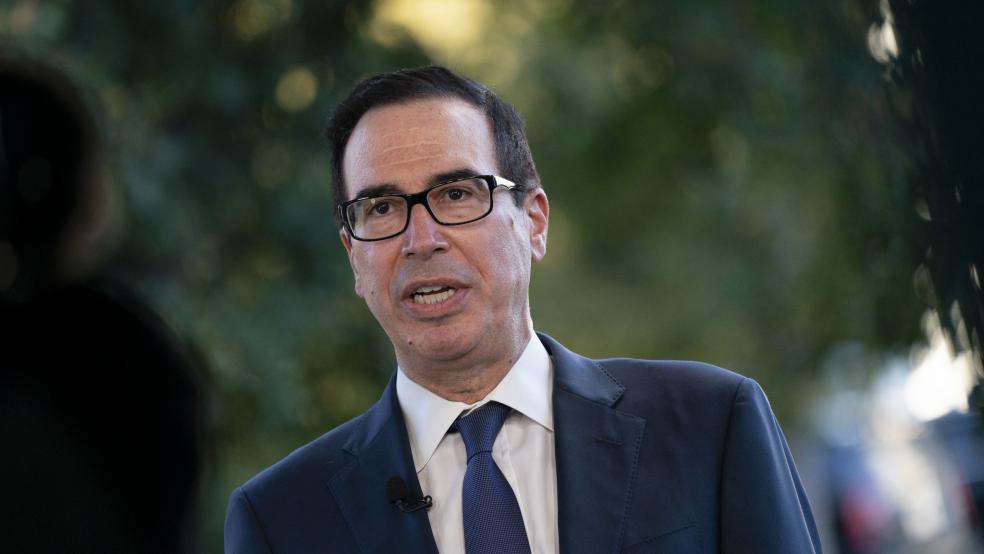Treasury Secretary Steven Mnuchin on Thursday asked the Federal Reserve to allow a number of its emergency lending programs to expire as scheduled at the end of the year and return hundreds of billions of dollars in unspent funds from its emergency pandemic lending programs.
Mnuchin said that the programs were no longer needed, but in a short but extraordinary response, the Fed publicly disagreed, signaling a rift between the Treasury and the central bank.
“I am requesting that the Federal Reserve return the unused funds to the Treasury,” Mnuchin wrote in a letter to Federal Reserve Chair Jerome Powell. “This will allow Congress to re-appropriate $455 billion, consisting of $429 billion in excess Treasury funds for the Federal Reserve facilities and $26 billion in unused Treasury direct loan funds.”
Mnuchin asked that five programs for emergency loans to businesses and local governments expire as scheduled on December 31. “The Fed programs were launched this spring to stabilize markets and extend credit to U.S. companies as the Covid-19 pandemic took hold,” Bloomberg’s Saleha Mohsin and Catarina Saraiva note. “They helped quell the panic but take-up has been relatively low -- which the Fed says is a sign that they’ve worked.”
Mnuchin requested that, out of an “abundance of caution,” four other Fed lending programs be extended for 90 days.
In its response, the Fed said that it “would prefer that the full suite of emergency facilities established during the coronavirus pandemic continue to serve their important role as a backstop for our still-strained and vulnerable economy.” Powell said Tuesday that he didn’t think it was time yet to end the programs.
Mnuchin’s letter said that, in the “unlikely event” that the shuttered lending facilities are needed again, the Fed could request approval from the Treasury to re-open them, using existing emergency funding from the Treasury new money from Congress.





